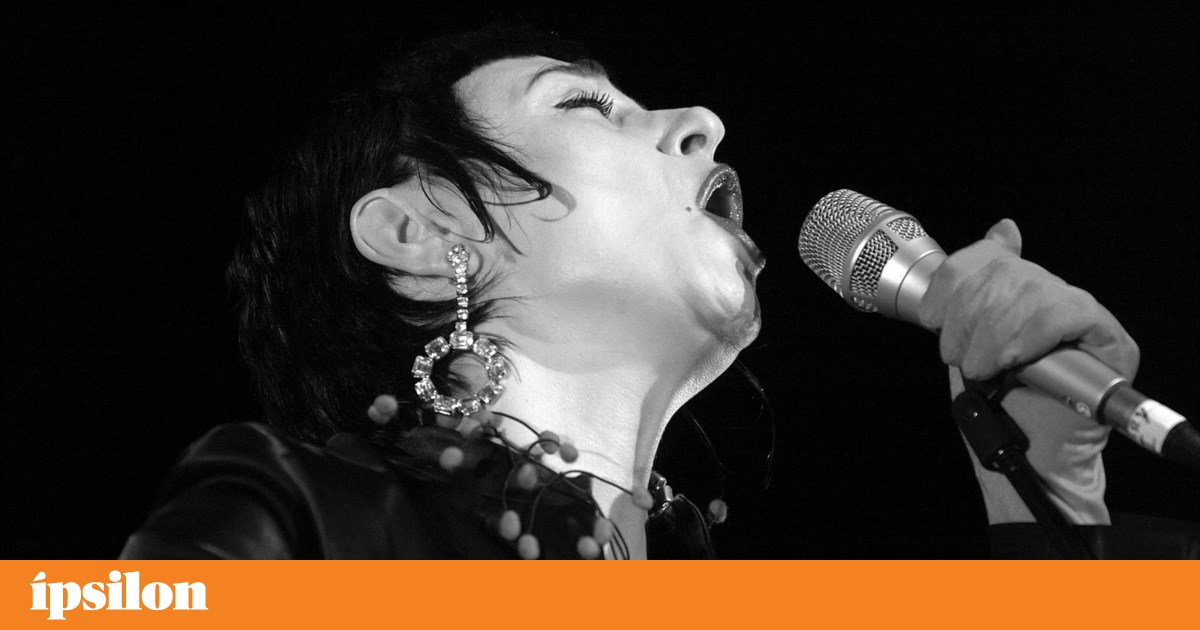Singer and fado singer Misia died on Saturday at the age of 69. The news was announced in a social media post by Richard Zemler, an American writer who lived in Portugal for a long time. “I am devastated that my longtime friend, singer Misia, has just left us. She passed away peacefully, gently, painlessly.”
Susana Maria Alfonso de Aguiar, known as Misia, was born in Porto. The daughter of a Spanish mother and a Portuguese father, she chose her stage name after reading the biography of Misia Sert, a woman born in Tsarist Russia and living in Paris who was a pianist and patron of the arts (her path intersects with those of other people). Like Proust, Monet, Signac, Debussy or Coco Chanel. “His name was short and round; I had never heard that before. I adopted it immediately,” says the Portuguese woman.
It was first recorded in 1991 and was simply titled MessiahThis comes after two years, Fadowhere he sang lyrics written by Antonio Lobo Antunes (I was born to die with you) and Sergio Godinho (Poetic freedoms), played by Jacques Brel (With the passage of time) and explored the repertoire assumed by the vocal cords of Amalia's inevitable song (Street name).
Over the years, it has always maintained a regular production rhythm. Around the turn of the century, in 1999, it launched Qatari feelingsIt is an album in which he collaborated with pianist Maria João Pires. Four years later, he edited cornerwhere he began with songs by Portuguese guitar master Carlos Paredes, as well as poems by Vasco Graça Moura (between them, in 2001, another album bearing his name). rite:The sixth for the singer).
In 2015, it was launched. For Amaliaa double album with four original compositions (signed by Amélia Muge, Mário Claudio, Thiago Torres da Silva, Mísia herself) and many more scandals that are part of Amália Rodrigues' repertoire. “I took the opposite path than you sometimes do when you start your career singing Amalia’s works. I recorded [canção] Tear On my first album and I sing it from time to time, but I always had the foresight not to go there. However, I could have first taken my own path. Now, yes, I can say “I will give Amalia a gift”, like I gave Carlos Paredes a gift with her corner“He said in one of the many interviews with PÚBLICO.
After one year For AmaliaMisia looks back on the silver anniversary of her recording career: The Collection From the first fado to the last tangoIt is a double album that attempts to summarise 25 years of journey in 40 songs. “It was difficult [escolhê-las]I had to leave the dear children. The collection includes duets and collaborations with names as diverse as Adriana Calcanhotto, Maria Bethânia, The Legendary Tigerman, Dead Combo or even Iggy Pop.
After the release of the collection, a difficult period followed, during which Misia had to fight a battle against cancer. Pura Vida (soundtrack)It is an album released in 2019, and it is a picture of “two difficult years that she endured with her feet on the ground and in music“, that Journalist Nuno Pacheco will be in residence in the pages of Epsilon: “The result is a crossing of fado and tango, sounds of heaven and hell, and it is overwhelming.
CB Aragon
In one of the images, part of the album’s visual art, the singer is seen emerging from a washing machine. Misia explained to Epsilon the idea behind the image: “When I had my first cancer, and 15 months later another cancer appeared, I felt like I was a person in a washing machine that I didn’t know the programming of. And when you think it’s going to appear right away, the machine starts a new program and spins.”
In 2021, he organized the ceremony. the most beautifulwhere he revisited his journey and his most iconic songs. A year later he edited it emotional animalAnd an album and also a book. “Before, I said that I don’t cry my personal tears when I sing, because I cry them in my kitchen. Here, on this album, it’s not that I cry, but it was impossible to put a dam on certain experiences from recent years and keep them in a drawer,” he told us upon the album’s release.

“Infuriatingly humble analyst. Bacon maven. Proud food specialist. Certified reader. Avid writer. Zombie advocate. Incurable problem solver.”

